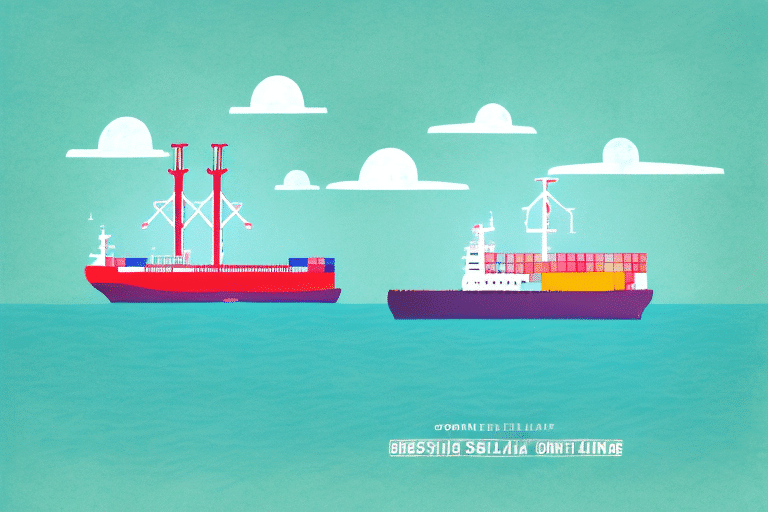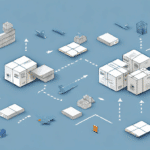Introduction to Streamlining Freight Shipping from China
Freight shipping from China is a cornerstone of global trade, with China being the world's largest exporter. In 2022 alone, China's export value reached approximately $3.59 trillion (Statista). As a business owner or procurement professional, refining your freight shipping strategy is essential to maintaining a smooth and efficient supply chain. This article delves into the common challenges associated with freight shipping from China and provides actionable strategies to streamline the process effectively. By implementing these best practices, you can enhance your understanding and optimize your freight operations from China.
Overcoming Common Challenges in Freight Shipping from China
Language Barriers and Communication Issues
One of the primary hurdles in freight shipping from China is communication barriers. Misunderstandings due to language differences can lead to delays and errors in shipments. To mitigate this, consider partnering with a freight forwarder that offers multilingual support and has experience handling international logistics.
Lack of Transparency and Tracking Difficulties
The lack of transparency in the shipping process can create uncertainty regarding the status and location of your freight. Utilizing advanced tracking systems provided by reputable freight forwarders can offer real-time updates, ensuring you stay informed throughout the shipping journey. According to a McKinsey report, enhanced visibility can reduce supply chain disruptions by up to 50%.
Customs Clearance Complexities
Customs clearance is often a complicated and time-consuming aspect of international shipping. Ensuring that all necessary documentation is accurately prepared and submitted is crucial to preventing delays and avoiding penalties. Partnering with experienced customs brokers can simplify this process. The U.S. Customs and Border Protection highlights the importance of accurate documentation in expediting the clearance process.
Seasonal Factors and Their Impact
Shipping from China can be significantly affected by seasonal factors such as holidays like Chinese New Year, which often result in reduced carrier availability and increased shipping rates. Planning ahead and scheduling shipments well in advance can help mitigate these seasonal impacts. For instance, shipping rates can rise by up to 30% during peak seasons (FedEx Holidays).
Selecting and Working with the Right Freight Forwarder
Importance of Freight Forwarder Experience and Expertise
Choosing a freight forwarder with substantial experience and expertise in handling shipments from China can simplify the logistics process. An experienced forwarder understands the intricacies of international shipping and can offer valuable insights to optimize your operations.
Assessing Carrier Networks and Global Reach
A freight forwarder with a robust network of carriers and global reach provides more shipping options, enabling you to select the most efficient and cost-effective routes. This can lead to significant savings in both time and cost.
Customs Compliance and Documentation Handling
An effective freight forwarder should have a strong track record in managing customs compliance and documentation. This expertise ensures that your shipments adhere to all regulatory requirements, preventing unnecessary delays at customs checkpoints.
Cost Optimization: Negotiating Rates and Packaging Strategies
Negotiating Competitive Rates with Freight Carriers
Securing favorable rates with freight carriers can substantially reduce your shipping costs. Conduct thorough market research to understand current rate trends and leverage your shipping volumes to negotiate better terms. Building long-term relationships with carriers can also result in more advantageous pricing structures.
Optimizing Packaging to Reduce Shipping Costs
Efficient packaging not only protects your goods but also minimizes shipping costs. Utilizing suitable packaging materials and optimizing the size and weight of your shipments can lead to lower freight charges. Consider working with packaging specialists to develop cost-effective packaging solutions that meet both your logistical and budgetary needs.
Ensuring Compliance: Customs Regulations and Documentation
Understanding Import Regulations
Every country has unique import regulations that must be adhered to when shipping goods internationally. Familiarizing yourself with the import requirements of the destination country is essential to ensure smooth customs clearance. Resources such as government trade websites and international trade organizations can provide up-to-date information on import regulations. For example, the International Trade Administration offers comprehensive guides on import requirements.
Preparing Accurate and Complete Documentation
Accurate documentation is critical for customs clearance and avoiding shipment delays. Essential documents include commercial invoices, bills of lading, and customs declarations. Utilizing digital tools and software can help streamline the documentation process, ensuring all necessary paperwork is correctly completed and submitted on time.
Working with Customs Brokers
Partnering with experienced customs brokers can facilitate the navigation of complex customs procedures. Customs brokers act as intermediaries between your business and customs authorities, handling the submission of necessary documentation and addressing any compliance issues that may arise.
Leveraging Technology for Efficient Freight Shipping
Implementing Advanced Tracking Systems
Technological advancements in tracking systems offer real-time visibility into the status of your shipments. Implementing GPS tracking and other advanced monitoring technologies can provide critical data, allowing you to proactively manage your supply chain and address any potential issues promptly.
Utilizing Freight Management Software
Freight management software can streamline various aspects of the shipping process, including order management, inventory tracking, and shipment scheduling. These tools enhance efficiency, reduce manual errors, and provide comprehensive analytics to inform strategic decision-making. Tools like Flexport offer integrated solutions for modern freight management.
Automating Documentation and Compliance Processes
Automation tools can significantly reduce the time and effort required to manage documentation and compliance. Automated systems ensure that all necessary paperwork is generated accurately and submitted promptly, minimizing the risk of errors and fostering smoother customs clearance processes.
Continuous Improvement of Your Freight Shipping Strategy
Regularly Evaluating Shipping Performance
Consistently assessing your shipping performance through key metrics such as delivery times, costs, and customer satisfaction can identify areas for improvement. Regular evaluations enable you to make data-driven adjustments to enhance your freight shipping strategy continually.
Implementing Continuous Improvement Processes
Adopting continuous improvement methodologies, such as Lean or Six Sigma, can help streamline operations, eliminate inefficiencies, and reduce costs. These approaches encourage ongoing assessment and refinement of processes to achieve sustained improvements over time.
Exploring New Shipping Routes and Methods
Innovating by identifying alternative shipping routes or methods can lead to greater efficiency and cost savings. Diversifying your shipping options reduces dependency on specific routes or carriers, mitigating risks associated with disruptions and ensuring greater flexibility in your supply chain.
Conclusion: Essential Strategies for Streamlining Freight Shipping from China
Efficient freight shipping from China is integral to maintaining a resilient and cost-effective supply chain. By addressing common challenges, selecting the right freight forwarder, optimizing costs through negotiation and packaging, ensuring compliance with customs regulations, leveraging technology, and continuously improving your strategy, you can significantly enhance your freight shipping operations. Implementing these strategies will help your business achieve timely deliveries, reduce shipping costs, and improve overall customer satisfaction, thereby driving greater success in your international trade endeavors.






















